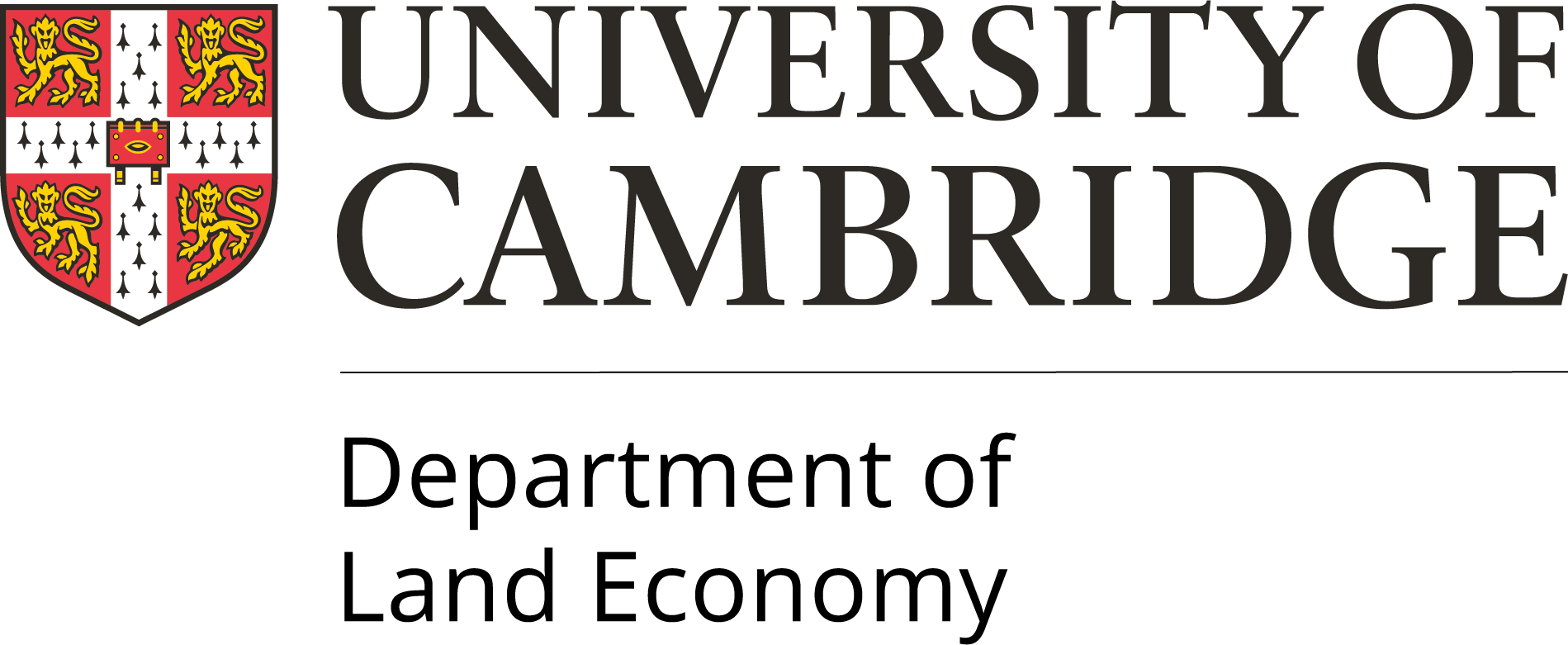“The University of Cambridge has around 20,000 students and over 11,000 staff, an estate portfolio valued at over £1.7bn, a planned capital building programme worth £412m, and energy costs of £15m a year. This means that the University has a high environmental impact and large carbon footprint. The University is committed to continual environmental improvement, including through a 'science based target' to reduce its energy-related carbon emissions to absolute zero by 2048, with a steep 75% decrease on 2015 emissions by 2030.”
Department of Land Economy Staff and Student Green Impact/Wellbeing Inclusion Plan
“Given the interdisciplinary nature of Land Economy, you will find that the people in the department have diverse interests and are always happy to share ideas. There are several ways to connect with like-minded people, both through groups within the Department, and through a range of related societies across the University.”
The aim of this plan is to build on the ideas and initiatives collated as part of our Green Impact Excellence Projects 2022-23 and 2023/24 to increase the level of LE staff and student awareness of and involvement in Sustainability and Wellbeing both within our department and beyond. All actions will be led by the LE Green Impact Coordinator/Wellbeing Advocate.
ACTION 1
To advertise, maintain and regularly update our dedicated Green Impact/Wellbeing webpages, including “Students getting involved” on the Land Economy Department website.
To also maintain and update the LE MS Teams Green Impact group page and contribute to the University’s online Sustainability networking groups as relevant.
ACTION 2
LE STAFF ONLY: To encourage all new starters to complete the University’s Environmental Sustainability online induction module as part of their departmental induction. The induction is currently only a 4-minute video as a new training course is under development.
ACTION 3
LE STUDENTS: To encourage participation in Green Impact and Sustainability by inclusion of details in the UG and PG Course Handbooks.
ACTION 4
To conduct an annual Green Impact/Wellbeing staff and student inclusion survey in Michaelmas Term to continue to gauge existing awareness of LE Green Impact/Wellbeing with a view to improving future involvement.
ACTION 5
To aim to complete as many criteria as possible in the Green Impact Workbook, with a view to maintaining our Platinum status.
And potentially consider completing a Local Environmental Sustainability Plan (LESP) in 2025/26

The existing Environmental Sustainability Vision, Policy and Strategy is split into the following categories, and these in turn form part of The Cambridge Green Challenge and annual Green Impact Award. Here at Land Economy, we aim to be as sustainably responsible as possible given the limitations of our current built environment.
Energy and Carbon Management
The University has adopted a Science Based Target Policy to reduce its energy-related carbon emissions to absolute zero by 2048.
In line with this ambitious aim, we continually run awareness campaigns and have energy saving posters and stickers displayed in all areas of the building including the common room and kitchen areas.
Also, as part of Green Impact (criteria GOLD 17) a workspace audit is carried out, usually by our students, to check that staff and students are switching off IT equipment (eg. PCs and printers) at the end of the day as required. We also have a Shut Down Plan.
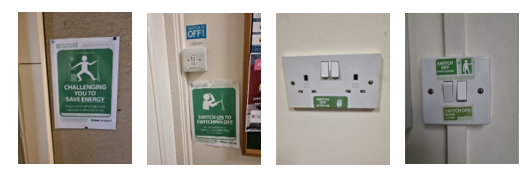

Water and Waste Management
We take water and waste management seriously at Land Economy and have done all we can within the limitations of the age and design of our building to reduce excessive water usage and waste, encouraging recycling and reuse as much as possible (e.g. use of WARPit).
For example, we have dual-flush toilets where possible, and water and waste reduction posters throughout the building.

In the Summer 2023, the department introduced the University’s new recycling policy and procedures, with an awareness campaign and new signage across the building so staff and students are clearly aware of how to dispose of their waste. We even made our own variation of the official poster!
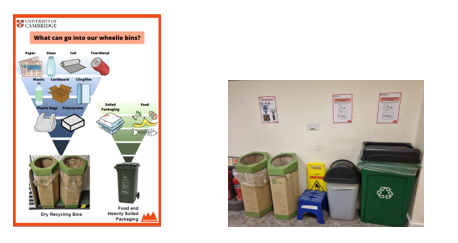
Sustainable Procurement
Sustainable procurement is integral to the University’s “journey to zero-carbon” and our department’s procurement strategy is conducted in line with the University’s overall Sustainable Procurement Policy and limited to those suppliers on the central procurement list. However, wherever we can whether it’s purchasing printer paper or catering for an event we aim to purchase products and services as sustainably as possible and check the sustainability credentials of our main suppliers.
For example, all our catering is sourced as part of our LE Sustainable Food Policy (see page 3 of our LE Sustainable Building Guide) which is in line with the University’s Sustainable Food Policy
Sustainable Construction and Refurbishment
Our departmental home in Silver Street is no longer really fit for purpose and the aim in the future is to either relocate us to a new purpose-built or refurbished site elsewhere within the campus. Any plans to relocate will obviously be guided by the University’s Sustainable Construction and Refurbishment policy.
Sustainable Travel
Sustainable travel is dear to our hearts at Land Economy, largely due to the inner-city constraints of our department’s location (central Cambridge, very limited car parking, challenging public transport routes etc.) and the ethos of our environmental teaching and research. Aiming to practice what we preach, we are dedicated sustainable travellers using all forms of transport to commute to/from our building: bicycles, scooters, bus (including P&R), train, car sharing and on foot.
We are fully signed-up to the University’s sustainable travel policy, especially applied to air travel to academic conferences for example, and encourage all staff to complete the annual travel survey and any other relevant University travel consultations (such as the current consideration of a new car parking policy).

Bicycles are important at LE and we have two well-lit bike sheds and a communal bicycle repair kit.
We regularly host the University’s Dr Bike maintenance sessions in our courtyard. For full details of the service and to book an appointment CLICK HERE
Environmental Sustainability in Teaching and Research
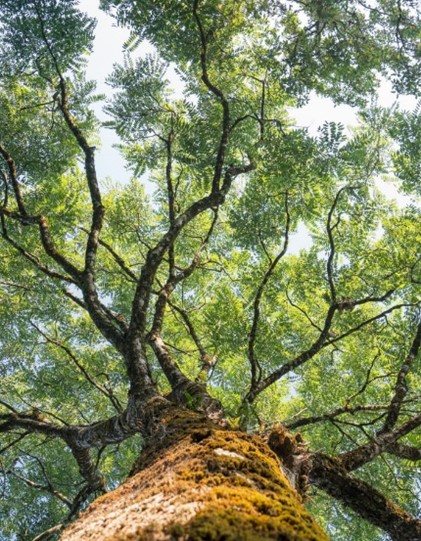
Environmental Sustainability is at the core of many of our courses, and to get an idea of our teaching and research check out our other webpages on Climate & Energy and Environmental Policy
Leading by example we ensure that all new employees in the department complete the University’s Environmental Sustainability Induction module. They are also encouraged to join our growing Green Impact Team and become a Sustainability Champion.
Partnership Engagement
In 2022-23 we were lucky to engage in a mentoring initiative with another department brought about by a chance introduction at a Green Impact awareness event. Our Green Impact Coordinator partnered with the coordinator at the Department of Zoology as they embarked on their first attempt to achieve a gold award. The collaboration was both useful and enjoyable for both parties as we were happy to pass on the benefit of our experience and they were able to fulfil criteria much quicker without having the start from stratch. It also gave us an opportunity to review how we are currently doing against the new criteria as this year we opted to do an Excellence project and not complete the Workbook. CLICK find out more about Green Impact.
And yes, Zoology was awarded gold at the ceremony in June.
Biodiversity
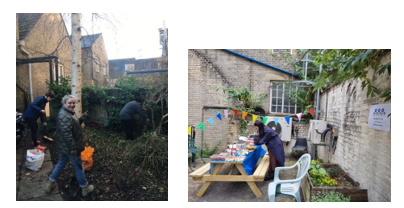
Our current Sustainability Champion and Green Impact Coordinator is an experienced and enthusiastic amateur gardener, so we are lucky that our very limited, very urban outdoor space is cultivated as much as possible to be welcoming both to wildlife and our staff and students 😊
There are two separate spaces: a wildlife area (created before rewilding became so popular) near the bicycle sheds and bin store area and a private courtyard garden that has been refurbished into a Wellbeing Space with loads of different flowers, shrubs and herbs.
Our courtyard is also home each spring to our visiting duck “Vera” who nests in the raised bed and hatches her ducklings safe from harm until she is ready to lead them across the car park and down to the river (we are situated next to the Mill Lane punts and pub). 
|
To see what has been achieved in the past four years in spite of the covid lockdown take a look at our special Biodiversity section.
LE Sustainability Champion & Green Impact Coordinator 25/03/24
